
Residents start evacuating Kherson as officials warn of harsh winter and Russian shelling

Residents start evacuating Kherson as officials warn of harsh winter and Russian shelling
From CNN’s Yulia Kesaieva In Kyiv
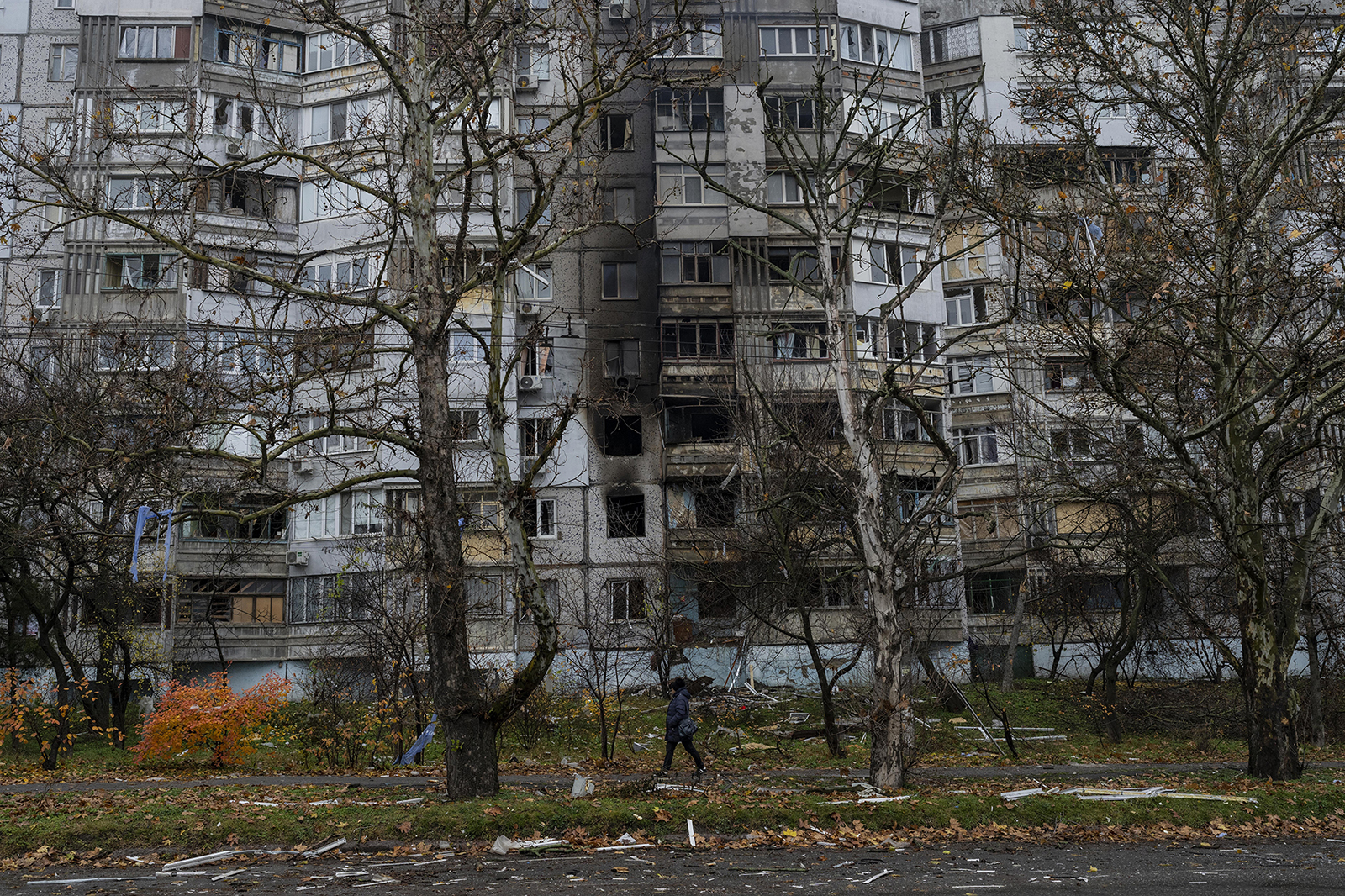
Voluntary evacuations for residents from the recently liberated port city of Kherson are underway, with the first train carrying away 100 people, the Ukrainian government said.
The train is bound for the western city of Khmelnytskyi, according to the country’s Ministry of Reintegration of Ukraine. Among residents who “took advantage of the free evacuation” are 26 children, seven bedridden hospital patients and six people with limited mobility, it said in a statement.
Authorities in Kherson are urging residents to leave the city, which is still mainly without power, before temperatures plunge further. Kherson has also come under renewed shelling since Russian troops were forced to leave the west bank of the Dnipro River.
Evacuees will receive financial support, accommodations and humanitarian aid once they reach Khmelnytskyi, according to city officials.
Authorities say there are also buses running from the Kherson region to the cities of Odesa, Mykolaiv and Kryvyi Rih, where people will be “accommodated in specially equipped shelters and then evacuated to safer regions of Ukraine by car.”
The West is struggling to set an oil price cap that hurts Russia
From CNN’s Julia Horowitz
Allies of Ukraine want to put a price limit on Russian oil. But there’s a problem: They can’t agree on a number that would actually pile pressure on the Kremlin.
The West’s biggest economies agreed earlier this year to cap the price of Russia’s most valuable export and vowed to hash out the details by early December. The move is aimed at reducing inflows to President Vladimir Putin’s war chest without adding to stress on the global economy by further reducing the supply of energy.
But as the deadline approaches, countries are still haggling over where the cap should be set.
A delicate balance: Media reports this week from a gathering of European diplomats indicated that Russian oil could be capped at between $65 and $70 per barrel. Yet this range is controversial since it’s close to the current market price of Russian crude.
That would mean limited disruption to supply, but also limited pain for Russia.
Setting the price lower would be more punishing to Moscow, but could exacerbate the global energy crisis — particularly if Russia retaliates. If it were to slash production by more than expected, it would drive up fuel prices just as countries like the United States, Germany and Japan are eager to get inflation under control.
Putin said Thursday that Western plans to introduce oil price caps would have “grave consequences” for energy markets.
Disruption is inevitable: The price level isn’t the only issue at hand. Setting a static range for the price cap — as opposed to establishing a floating discount for Russian crude pegged to where Brent is trading — could pose logistical problems since it would need to be frequently adjusted.
There’s also skepticism among oil traders that the measure can be enforced, according to Giovanni Staunovo, an analyst at UBS. He expects parties to transactions will hunt for loopholes.
Some analysts think the price cap will ultimately be less important than Europe’s oil embargo. The bloc has been buying about 2.4 million barrels per day of Russian crude, and Moscow will soon be forced to hunt for new customers.
To limit spare barrels, it’s likely to reduce output. That could push oil prices higher no matter what.
Read more here.
This map shows the latest state of control in Ukraine
The map below reflects the current front lines in Russia’s invasion of Ukraine.
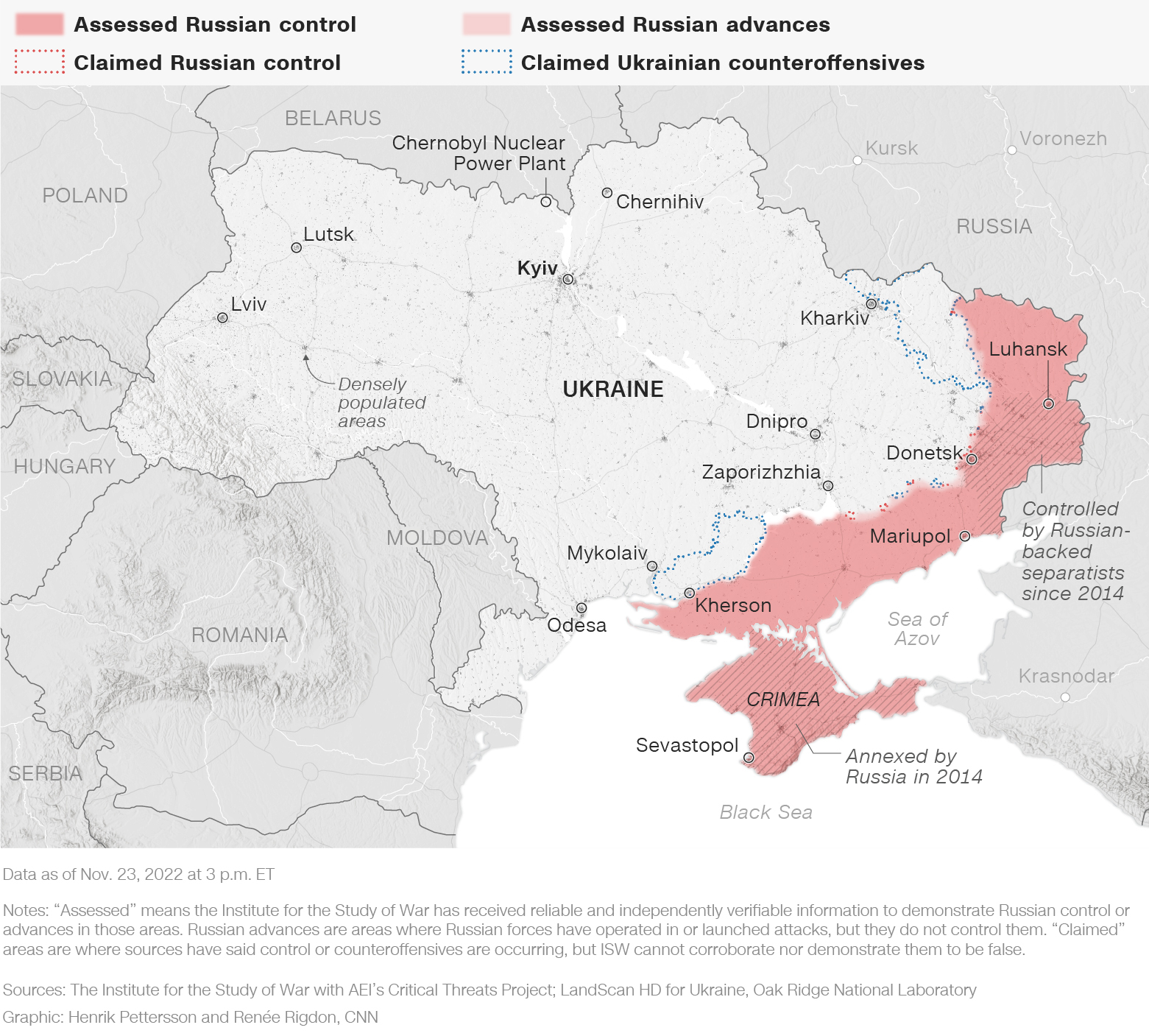
EU countries donate generators to help Ukraine get through winter
From CNN’s Eve Brennan, Irina Morgan and Ivana Kottasova
A number of European Union countries said they will donate power generators to Ukraine to help the country have heating for the winter.
France has announced it will send 100 high-power generators to Ukraine “as Russia wants to make winter a weapon of war,” French Foreign Minister Catherine Colonna tweeted on Friday.
“Reminder: strikes against civilian infrastructures are war crimes,” she added.
Prague Mayor Zdeněk Hřib announced that the Czech Republic will also donate power generators to Ukraine.
Hřib said the package would include 626 heaters, with 400 for Kyiv and 226 for Mykolaiv, along with other equipment.
“Plus 22 million CZK (approximately $939,000 USD) worth of medical supplies for the Public Health Centre of the Ministry of Health of Ukraine,” he added.
Latvia’s ambassador to Ukraine, Oleksandr Mishchenko, announced on Facebook that the capital city of Riga had partnered with a charity to donate 84 power generators and 100 heat guns for Kyiv.
Some background: The new pledges come after the EU launched its “Generators of Hope” initiative Wednesday, whereby a network of more than 200 large European cities aim to provide energy to essential facilities in Ukraine.
A Russian missile strike dealt another significant blow to Kyiv’s electricity infrastructure earlier this week, though an energy official voiced optimism Friday that normal power levels would be restored soon.
CNN’s Radina Gigova contributed to this report.
Germany and France sign joint declaration on energy solidarity
From CNN’s Nadine Schmidt in Berlin
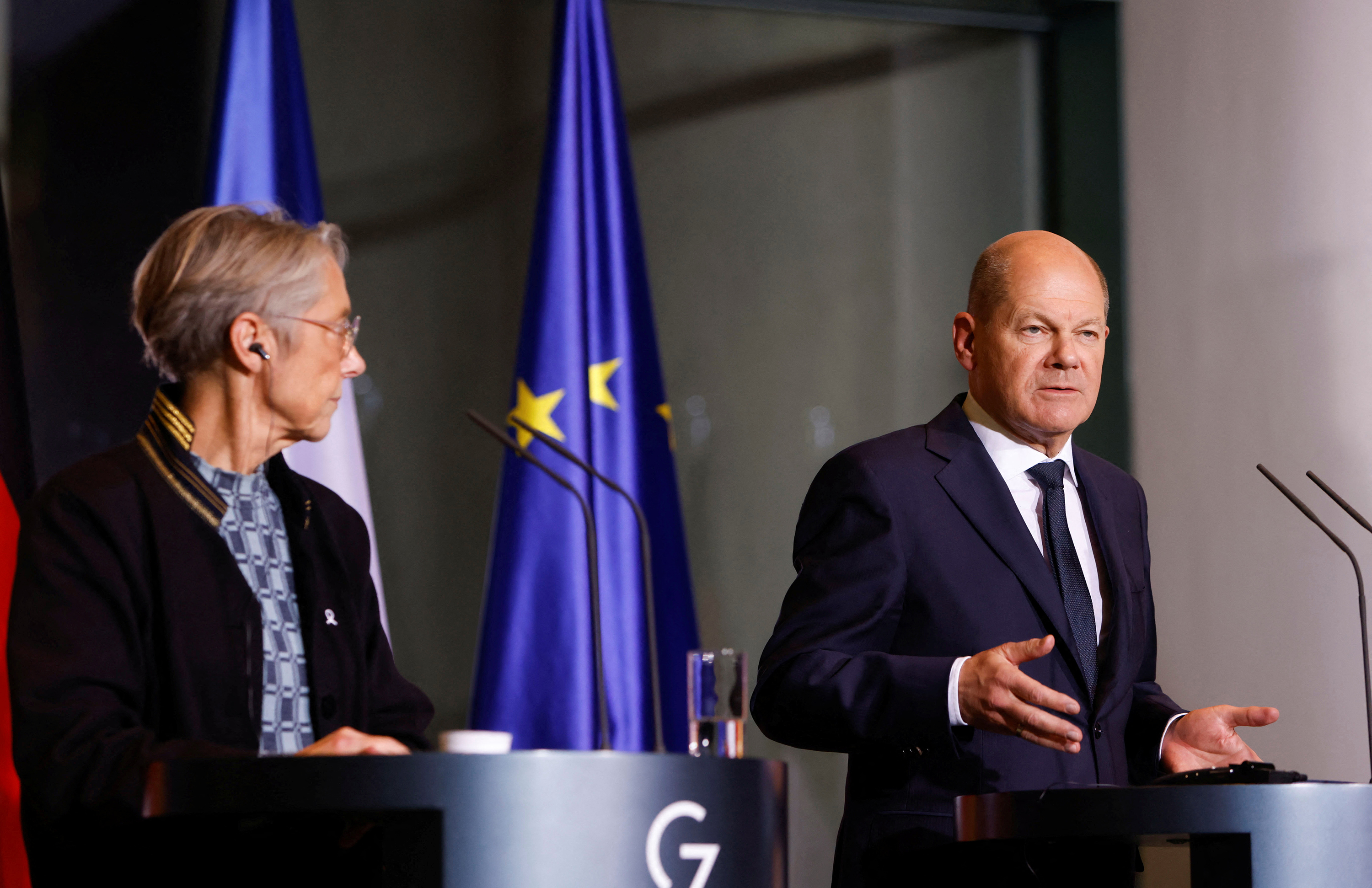
Germany and France have signed a joint declaration to strengthen energy solidarity, German Chancellor Olaf Scholz and French Prime Minister Élisabeth Borne announced Friday at a press conference in Berlin.
“Friends stand by each other in times of need,” Scholz told reporters during Borne’s inaugural visit to the German capital. “Germany and France exemplify common European solidarity,” he added.
“It is an important text that will have concrete effects and protect citizens in both countries,” Borne said. “Our two countries need each other to get through the energy crisis next winter.”
Relations between the two countries have been strained in recent months due to differing positions on key issues, such as energy, defense and industrial policies. Borne’s trip to Berlin on Friday is seen as an attempt to rekindle relations.
Scholz said Germany and France support Ukraine against Russia’s invasion and called on Russia to stop bombing Ukraine’s critical infrastructure.
Some context: Europe appears to be moving toward breaking its energy dependence on Moscow, with Russian exports of coal, oil and natural gas falling sharply since the invasion of Ukraine. But European imports of a key type of Russian natural gas have risen and remain critical to meeting energy needs, as CNN has previously reported.
Government adviser pledges Kyiv will have nearly “normal electricity coverage” by Saturday
From CNN’s Jo Shelley
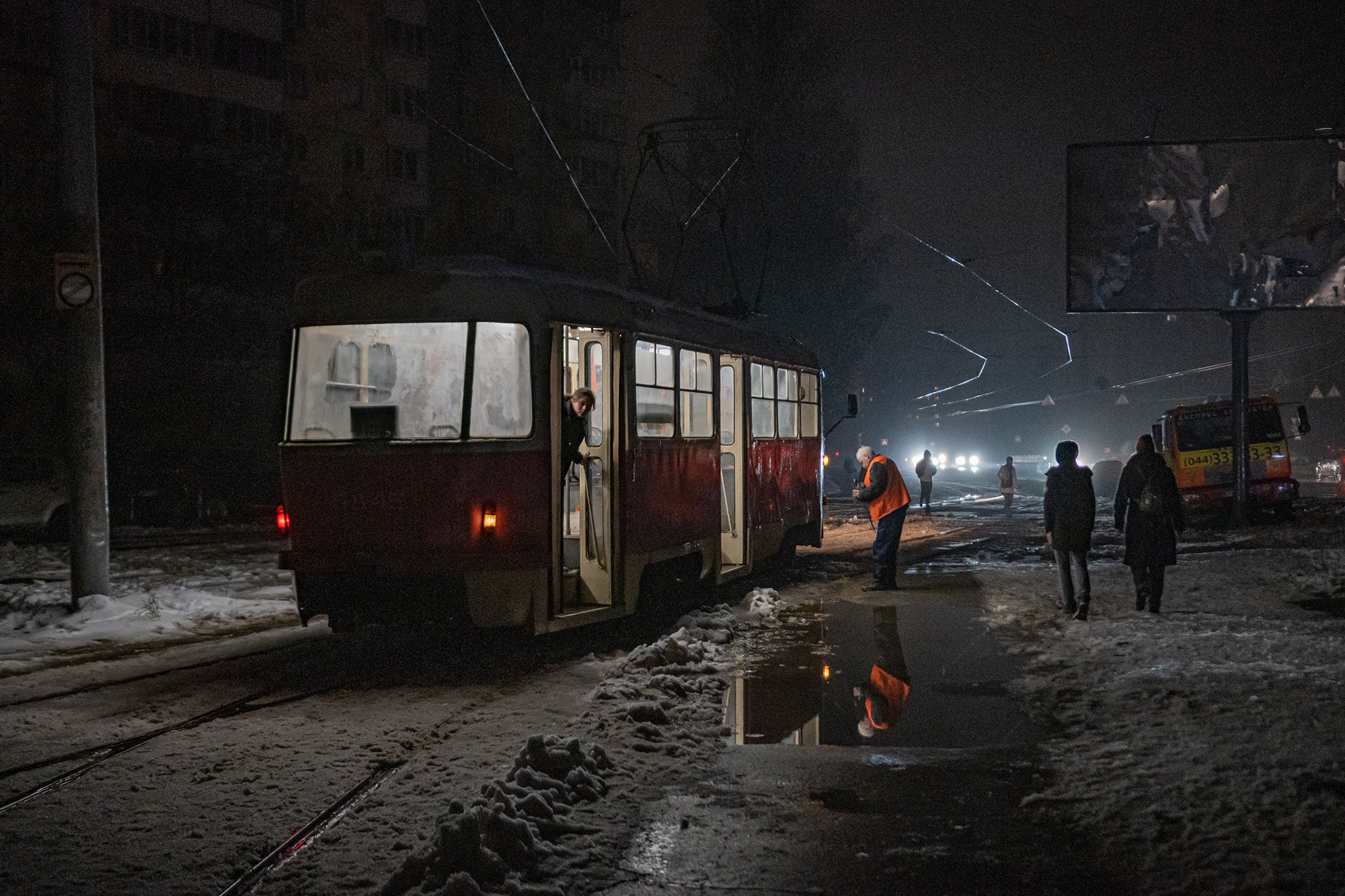
Power supply to the Ukrainian capital of Kyiv will near normal levels by Saturday, according to an adviser to the country’s energy ministry.
Oleksandr Kharchenko, director of the Energy Industry Research Center, said at a briefing that the “key factor” in restoring power in Kyiv and across Ukraine was the operation of the country’s three functional nuclear plants. He said he expected them to be working at normal capacity by Friday night.
“Now the key factor is nuclear power plants. … There is currently a lack of power generation,” Kharchenko said. “Judging by the situation, our nuclear power plants will reach their normal planned capacity by tonight. This will mean that we will return to the planned outage schedules and people will receive electricity for at least 16 to 18 hours a day.”
“The city of Kyiv will have more or less normal electricity coverage tomorrow,” he added.
Kharchenko did not say when he expected the power supply to the rest of the country to improve.
Ukraine is heavily dependent on nuclear energy, according to the World Nuclear Association. Before Russia’s full-scale invasion in February, the 15 reactors at its four plants generated about half of the nation’s electricity.
Kharchenko went into detail about the impact of Wednesday’s large-scale Russian missile assault on the energy grid, which he said “returned to its integrity and ability to operate as a single system within 10 to 11 hours” of the blackout.
In addition to reconnecting the power plants, increasing their generation capacity and managing the balance of the grid, engineers needed to repair equipment and “step by step” reconnect consumers who had been disconnected, he said.
The attacks damaged or destroyed more than half of the “key equipment” of the high voltage electricity transmission network, he added.
“The world will not produce the quantity enough to cover Ukrainian needs even within a year. We are now in discussion with all producers of such equipment,” he said.
Kharchenko appealed for generators to mitigate the impact of further strikes.
“We are currently seeking generators of all power levels, from all over the world, to secure our cities in case of blackout,” he said.
The head of the European Parliament, Roberta Metsola, has called on cities to donate generators and transformers to help Ukrainians get through the winter.
The US ambassador in Kyiv said on Friday that USAID had delivered 80 generators to Ukraine “to help keep the power on.”
Ambassador Bridget Brink tweeted “this support is just one part of the U.S. response to Russia’s cruel, sustained attack on critical infrastructure as we continue to #StandWithUkraine.”
Putin says all Russian soldiers are “equal” despite concerns minorities were targeted for conscription
From CNN’s Katharina Krebs
Russian President Vladimir Putin said Friday that all soldiers fighting for Russia in Ukraine are “equal,” as activists and Ukrainian officials raise concerns that minorities were disproportionately targeted for conscription in the war.
“I know that the guys there do not divide themselves into any separate, that means castes, nationalities. Everyone is equal, everyone helps each other and understands that their lives depend on this mutual assistance and support,” Putin said Friday, during a meeting with the mothers of servicemen deployed to Ukraine.
Putin added that it is “innate for Russian soldiers to perform their duty with dignity, and even more so for soldiers from the Caucasus, from Dagestan, where people are of a special temperament.”
In September, Putin’s mobilization orders sparked protests in some ethnic minority regions of Russia. Several videos posted to social media, which CNN geolocated to the predominantly Muslim region of Dagestan, showed women in the capital Makhachkala pleading with police outside a theater.
“Why are you taking our children? Who attacked who? It’s Russia that attacked Ukraine,” they could be heard saying in the video. Groups of women then begin chanting: “No war.”
Pope writes letter to “bold and strong” Ukrainian people
From CNN’s Sarah Dean and Delia Gallagher
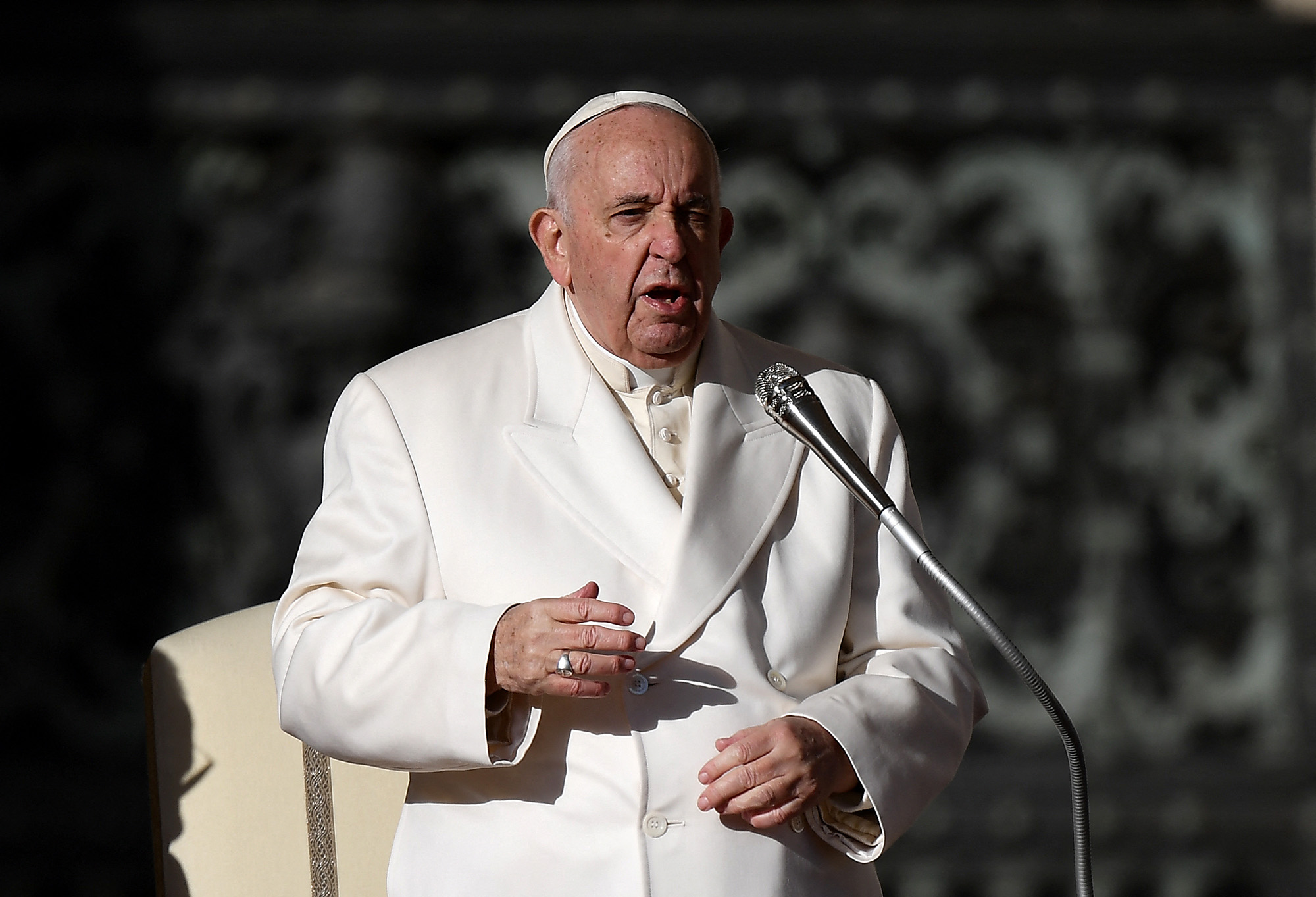
Pope Francis has written a letter to the Ukrainian people that was published on Friday by the Vatican.
“Not a day goes by that I am not close to you and hold you in my heart and prayers,” the Pope said in the letter, which was originally written in Italian.
“Your pain is my pain,” he wrote.
Francis did not mention Russia, but asked: “How is it possible that men can treat other men this way?”
The Pope mentioned the suffering of young Ukrainian children killed and displaced people who have had to flee the war.
“In each one of them is the defeat of the whole of humanity,” he said.
The letter expressed sympathy for young people “who have had to take up weapons to courageously defend their country,” mothers who have lost husbands, the elderly and volunteers.
“In this ocean of evil and pain,” the Pope wrote, “ninety years from the terrible Holodomor genocide, I admire your ardor. Even in the immense tragedy you are suffering, the Ukrainian people has never become discouraged or abandoned themselves to commiseration.”
The 1932-1933 Holodomor, or Terror Famine, was artificially engineered by the Soviet leader Joseph Stalin, who removed food stocks from Ukrainian peasants, leading to the deaths of millions of people.
“The world has recognized a bold and strong people, a people who suffer and pray, weep and fight, resist and hope, a noble and martyred people,” the Pope added.
Ex-German leader Merkel says she wanted Ukraine talks with Russia but lacked authority
From CNN’s Nadine Schmidt
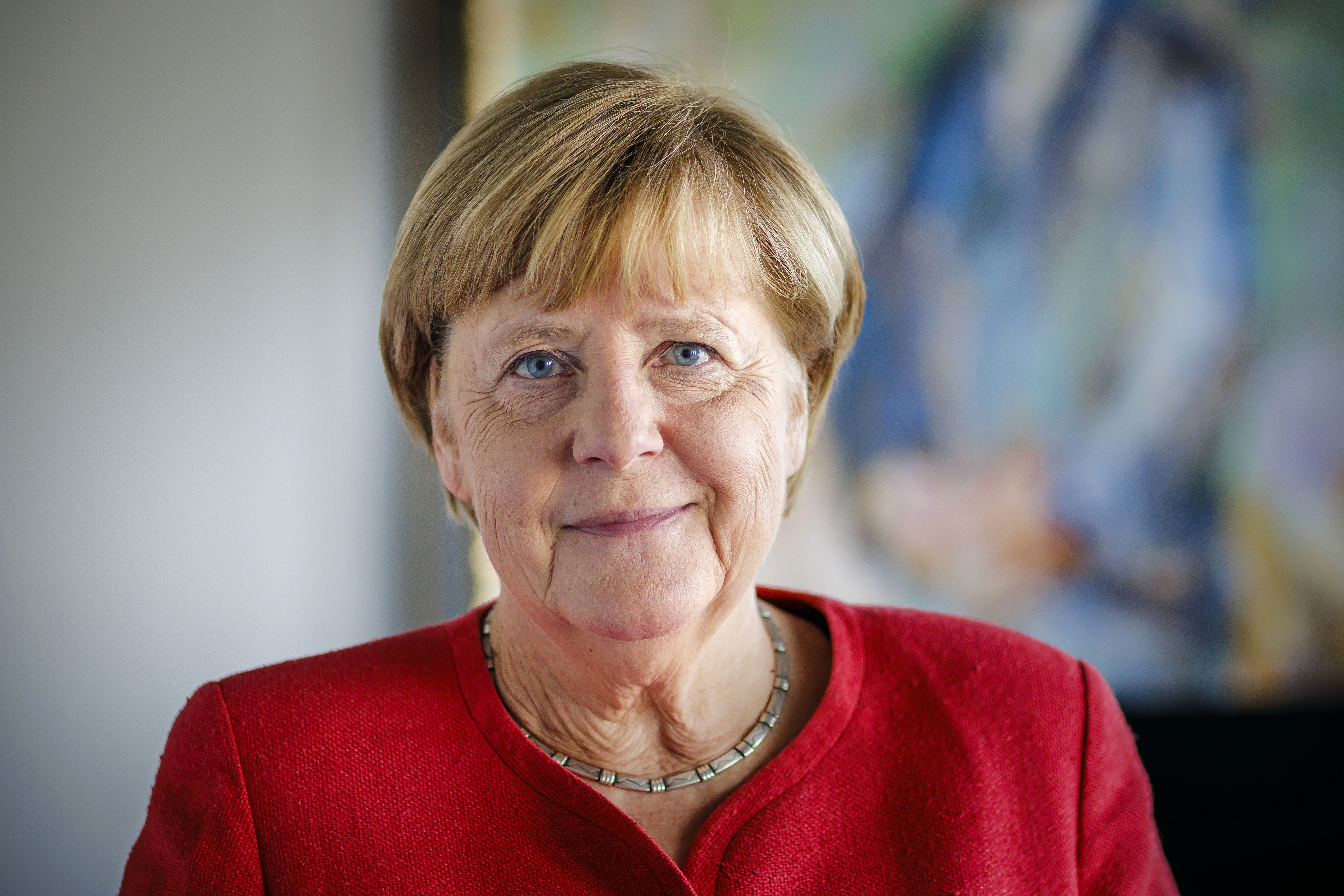
Former German Chancellor Angela Merkel said she wanted to set up a European format for talks involving French President Emmanuel Macron and Russian President Vladimir Putin in a bid to find a solution to tensions between Russia and Ukraine before she left office last year, but said she lacked authority.
“I no longer had the authority to push it through, because everyone knew after all: she will be gone in the autumn,” Merkel is quoted as saying in Germany’s Der Spiegel magazine published Thursday, defending her policy toward Russia and Ukraine.
The former chancellor had indicated for a long time she would leave office after the September 2021 national elections in Germany. Merkel officially left office in December 2021.
In August that year, she traveled to Moscow on her last official visit. Describing the meeting between herself and the Russian president, Merkel told Der Spiegel: “The feeling was entirely clear. ‘As far as power politics is concerned, you’re finished.’ For Putin, only power counts.”
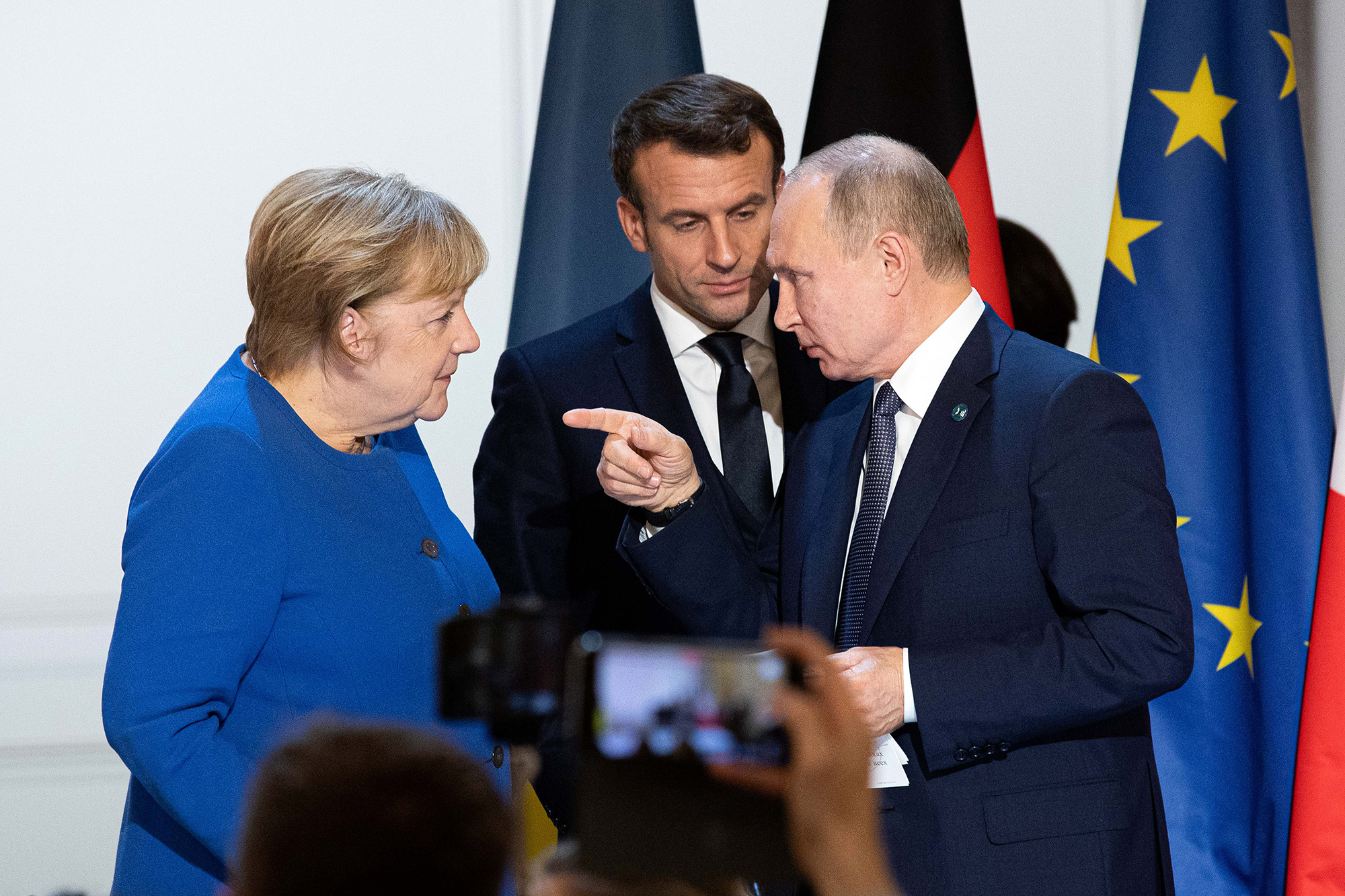
Merkel initiated the Normandy Format, which was set up in 2014 between Germany, France, Russia and Ukraine following the Russian annexation of Crimea and its incursion into eastern Ukraine in February 2014.
“After Russia’s annexation of Crimea, we tried everything to prevent further incursions by Russia into Ukraine and coordinated our sanctions in detail,” Merkel said.
‘I would have liked to have had a more peaceful time after I left, because I was very involved with Ukraine,” Merkel is quoted in the interview.
Since Merkel left office, she and her old government have come under fire for allowing the country to become too dependent on Russian oil and gas.
Source: https://www.cnn.com/europe/live-news/russia-ukraine-war-news-11-25-22/h_6ae2ef82eb628333166c7defda5b16d1


















